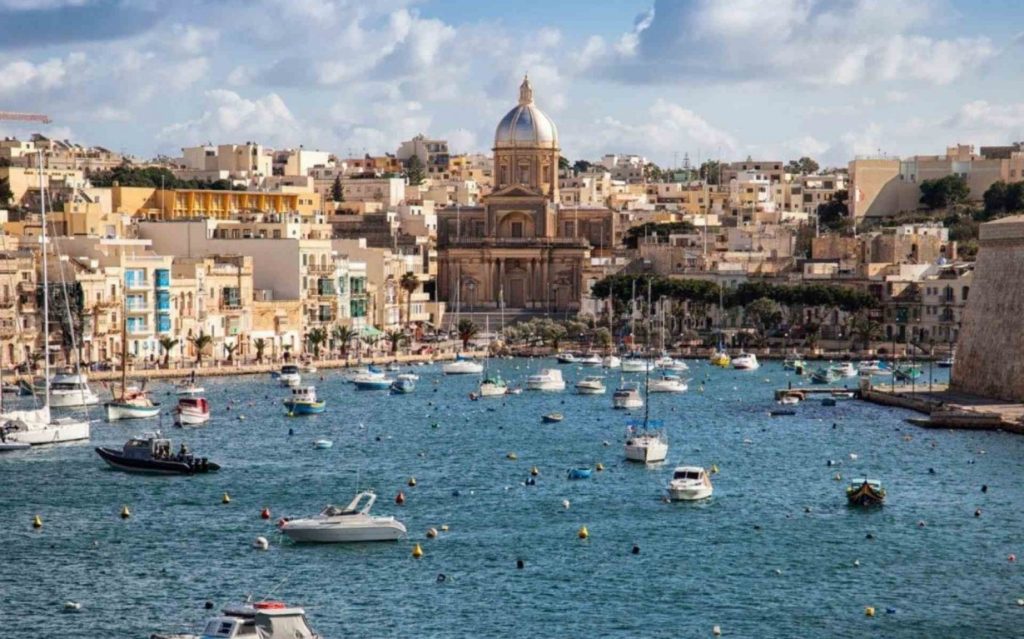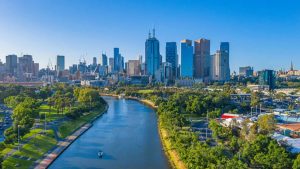
Malta Sustainability Problems And Circular Economy Solutions
Air Pollution ‘Kills 570 People A Year’ In Malta
Malta, a Southern European island country which is the world’s tenth smallest country with a population of over 0.4 million people. Due to its stunning landscapes, ancient buildings and Maltese food, It is a famous tourist destination with about 2.7 million tourists, reported in 2019.
MALTA PROBLEMS
AIR POLLUTION
- Air pollution is a big problem for the country. Malta has the second-worst air pollution in Europe.
Cruise ships cause more pollution than vehicles in Malta. In 2017, 83 cruise ships visited Malta belched out 148 times sulphur in the air of the country.
- The country’s facing the worst air quality due to 300,000 vehicles releasing smoke in the air and causing severe health problems.
- Children in Malta breathe higher doses of air pollution into their lungs than adults, coming at a greater risk of bronchitis, asthma, pneumonia and other cardiovascular diseases.
- Construction of building work in Malta is the leading contributor for poor air quality in the country.
WASTE PRODUCTION AND PLASTIC PROBLEMS
Plastic has always been a serious environmental concern for the country.
- Malta’s total plastic production in 2016 was 8,714 tonnes, out of which 10% of waste is recycled and 90% of waste goes to landfills which will be full in two years.
- In Malta, 800 plastic toothbrushes are used every year that add up to 20 tonnes of plastic.
- A national clean up organised by Let’s Do It Foundation in 2017 found 1,862 garbage bags, out of which 465 bags were filled with plastic bottles in Malta.
Plastic generation in Malta (timesofmalta.com)
Malta ranked second in Europe for the waste disposal in landfills in 2014
- Due to the overuse of plastics, Malta is facing vast waste management problems. According to the European statistical system, The total amount of solid waste generated in Malta during 2018 was 2.6 million tonnes.
- Waste tyres in Malta causing environment deterioration and leading to serious concern.
FOOD WASTE
- Every single year 5,899,000 kgs of food are thrown away across the island.
- 6 million kilos of edible food lost and wasted.
- The Maltese people throw 139 kilos of food per person annually out of which 25% of food in Malta end up wasted and thrown away.
INITIATIVES BY AUTHORITY
- The administration issued a single-use plastic products strategy in May 2019 to eliminate plastic pollution from Malta.
- Under the proposed directive, items such as plastic straws, cotton swabs, disposable plastic plates and cutlery would be banned by 2021.
- The Malta Business Bureau and the Institute for Tourism Studies launched their EU LIFE FOSTER Project in 2019, a three-year project aimed at reducing food waste in Malta.
- The National Air Pollution Control Programme took initiative to reduce air pollution in Malta by shifting to natural gas to generate electricity and closed the Marsa Power Station and observed a decrease in Sulphur dioxide by 94.7% and nitrogen oxides by 91% between 2005 and 2017.
- Under the new administration rules known as circular economy, by 2025, Malta should recycle at least 55% of municipal waste from households and businesses.
INITIATIVES BY COMMUNITY
BirdLife Malta is an environmental organisation established in 1962 in Malta conserving the biodiversity of the country from air pollution. The organisation is currently working on a project “together against air pollution from ships” since December 2016 which will be delivering an awareness campaign on air pollution.
BirdLife Malta Project aims to cut air pollution from ships in Malta (timesofmalta.com)
Project AWARE is a non-profit organisation founded in 1989 with offices globally, working with scuba divers for ocean conservation. The organization had arranged a campaign “Say No to plastic” in Malta on 18th April 2015 to make Malta plastic-free.
Plastic campaigns by project aware in Malta (projectaware.org)
WHAT IS CIRCULAR ECONOMY?
The circular economy works on the principle of recycling materials and giving it back to the environment without harming it. Circular Economy involves reduction, reuse and recycling of materials to protect the environment from degrading. The main aim of the Circular Economy is to give back a new recyclable product to the environment.
European Commission delivers on the circular economy plan in Malta (ec.europa.eu)
Implementation of the circular economy in Malta will give the country a sustainable environment to live and tackle all its problems regarding air pollution, waste production and plastic problems.
Circular economy solution towards air pollution in Malta
- Hazardous pollutants can be filtered from industries before they are released in the air and can make air pollution-free.
- Reducing the number of vehicles on the road by carpooling or using bicycles, in the other way cut down on driving wherever possible.
Malta increasing environmentally-friendly vehicles by disposing of old vehicles (maltatoday.com.mt)
- Installation of catalytic converters in the car, convert toxic air pollutants into harmless substances like water and can prevent major air pollution on roads.
- Using low sulphur fuels in ships, reducing the ship’s impact on air quality.
Circular economy solution towards waste production and plastic problems in Malta
- Shift your direction towards the circular economy, reduce your waste, recycle it and try to give it a second chance to prevent waste production in the country.
- Use/buy less packaged foods to avoid excessive food packaging and control plastic problems.
Malta’s supermarkets started using veggie bags instead of plastic bags (lovinmalta.com)
- Swap to wooden or bioplastic materials that will be less harmful to the environment.
- Switch to reusable water bottles, coffee mugs, cloth napkins and paper straws.
Circular economy solution towards food waste problems in Malta
- Save leftovers or re-purpose in other dishes to reduce the amount of food waste.
- Try to plan meals and serve what you need to avoid unnecessary food wastage.
- Share your food with one in need rather than throwing it in bins.
- Start composting your food with the help of compost pile or container which leads to the reduction of food wastage and soil conservation.
EARTH5R CIRCULAR ECONOMY INITIATIVE
Earth5R has conducted various workshops and programmes related to the circular economy across all over India benefiting the environment and people over there.
One of the circular economy models implemented by Earth5R was composting and organic waste management at Mumbai. Earth5R team installed organic composting units at Silver Crest, Chandivali, Powai, Mumbai. These units can process approximately 1.5 Metric Tons of organic waste into compost.
The founder of Earth5R, Saurabh Gupta showing how the compost is obtained from units (earth5r.org)
Environmental benefits
- Reduces landfill waste and minimizes the number of greenhouse gas emissions released into the air.
- Composting retains more water which causes plants to not need to be watered as frequently and supplies the soil with nutrients like nitrogen and phosphorus reducing the need for synthetic fertilizers.
Social benefits
- Composting benefits local communities such as parks and flower beds while involving human-scale technology.
- Composting encourages volunteerism, active lifestyles and more people get involved.
Economical benefits
- Composting reduces or eliminates dumping cost and creates a long life span of landfills.
- Composting promoting economic growth by reducing unemployment and giving immense job opportunities to all people.
Reach out to Earth5R to know more about solving environmental issues by creating a circular economy based sustainability project.
ABOUT EARTH5R
Earth5R is an environmental organization from India with its head office at Mumbai. It works with the NGO sector, Companies and helps them conduct environmental corporate social responsibility (CSR) programs across India. Earth5R specializes in circular economy based projects. Earth5R also offers short term and long term environmental courses.
Earth5R’s Global Sustainability Hub is a cross-sector and cross-country collaboration in pursuit of UN Sustainable Development Goals. It is an excellent opportunity for governments and the private sector to engage with communities, use Sustainability-based models to drive economic changes and create social and environmental impact.
Reported by Kinshu Kumar, edited by Mehfil Mubarak




